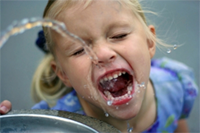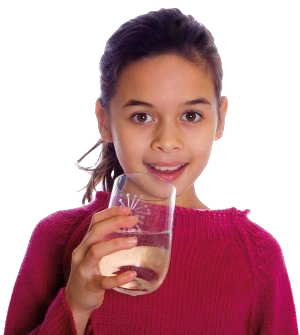 With the summer on its way, the need for children to keep properly hydrated is again being highlighted. The summer season brings with it many outdoor activities and children are often spending hours outside without any water breaks. It is for this reason that many schools are installing water coolers into their facilities. These water coolers are the perfect solution to helping children not only stay hydrated, but also to aid them in developing correctly. For children between the age of 11 and 14 they need to consume more water per day than an adult. Boys in that age group need to drink about 3.2L each day, while girls in that age group need on average 2.8L.
With the summer on its way, the need for children to keep properly hydrated is again being highlighted. The summer season brings with it many outdoor activities and children are often spending hours outside without any water breaks. It is for this reason that many schools are installing water coolers into their facilities. These water coolers are the perfect solution to helping children not only stay hydrated, but also to aid them in developing correctly. For children between the age of 11 and 14 they need to consume more water per day than an adult. Boys in that age group need to drink about 3.2L each day, while girls in that age group need on average 2.8L.
Water is one of the most important cornerstones of a healthy growing child as it aids in cell generation, nutrient transfer and mental ability. Tests have proven that a child that is correctly hydrated will have far better mental and physical results than a thirsty child. These tests are the reason that some schools are now encouraging their learners to carry small water bottles with them with water. These water bottles are filled on regular intervals between classes and during breaks. Teachers are encouraging their learners to drink more and the results are brilliant.
 Companies like AquAid have a wide selection of water coolers that are installed into schools, gyms and learning centres across the country. Their water coolers can either be mains fed for large schools where the water consumption is high, or for schools where there are no water mains close to a particular area bottled water coolers can be installed and replaced on scheduled intervals.
Companies like AquAid have a wide selection of water coolers that are installed into schools, gyms and learning centres across the country. Their water coolers can either be mains fed for large schools where the water consumption is high, or for schools where there are no water mains close to a particular area bottled water coolers can be installed and replaced on scheduled intervals.
Another major factor why children should drink more water is that it aids in reducing obesity and other related health problems. Children often mistake thirst with hunger, and many parents don’t know the signs either, giving their children more food each day than they need. By simply having a glass, or bottle of water first children will eat less unnecessary food each day. This health benefit alone is reason enough to insist that your child’s school places more focus in child hydration at their school.
